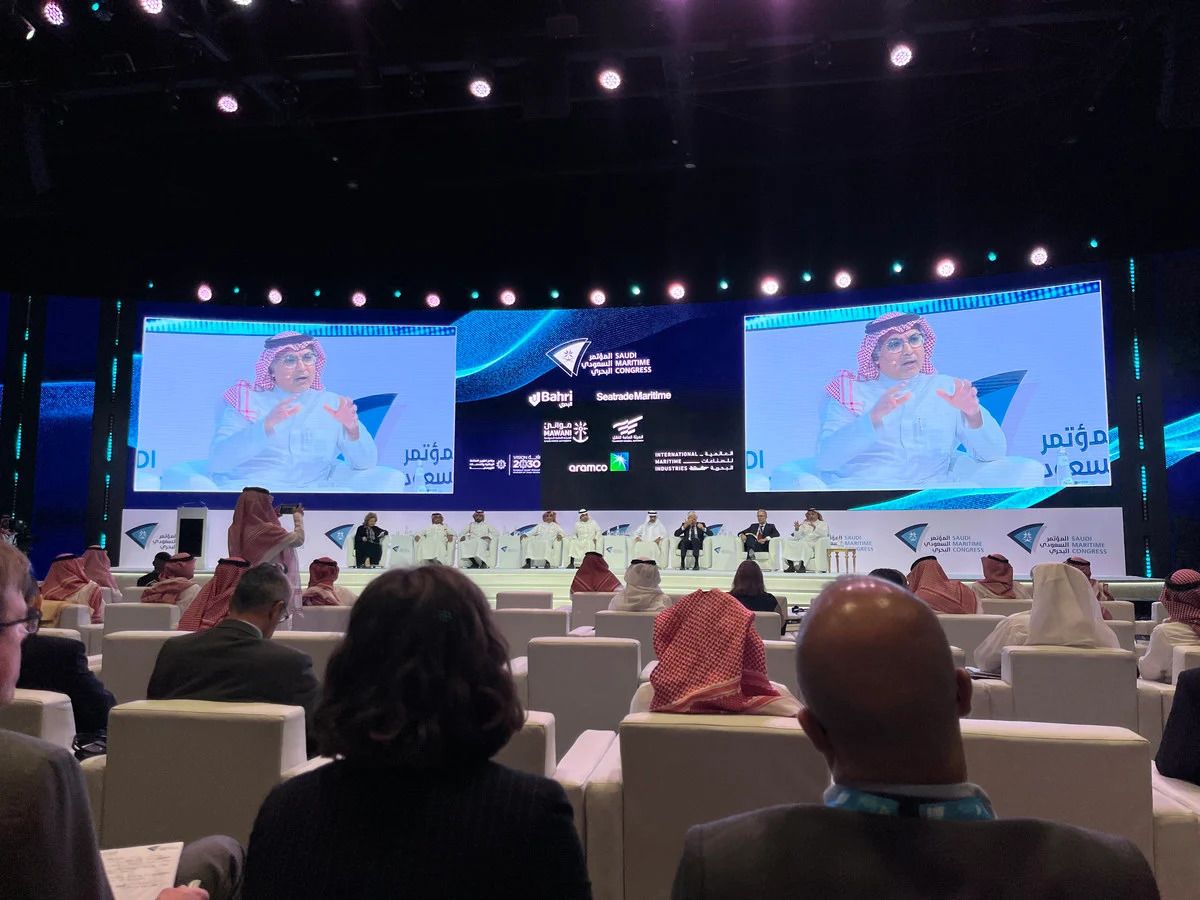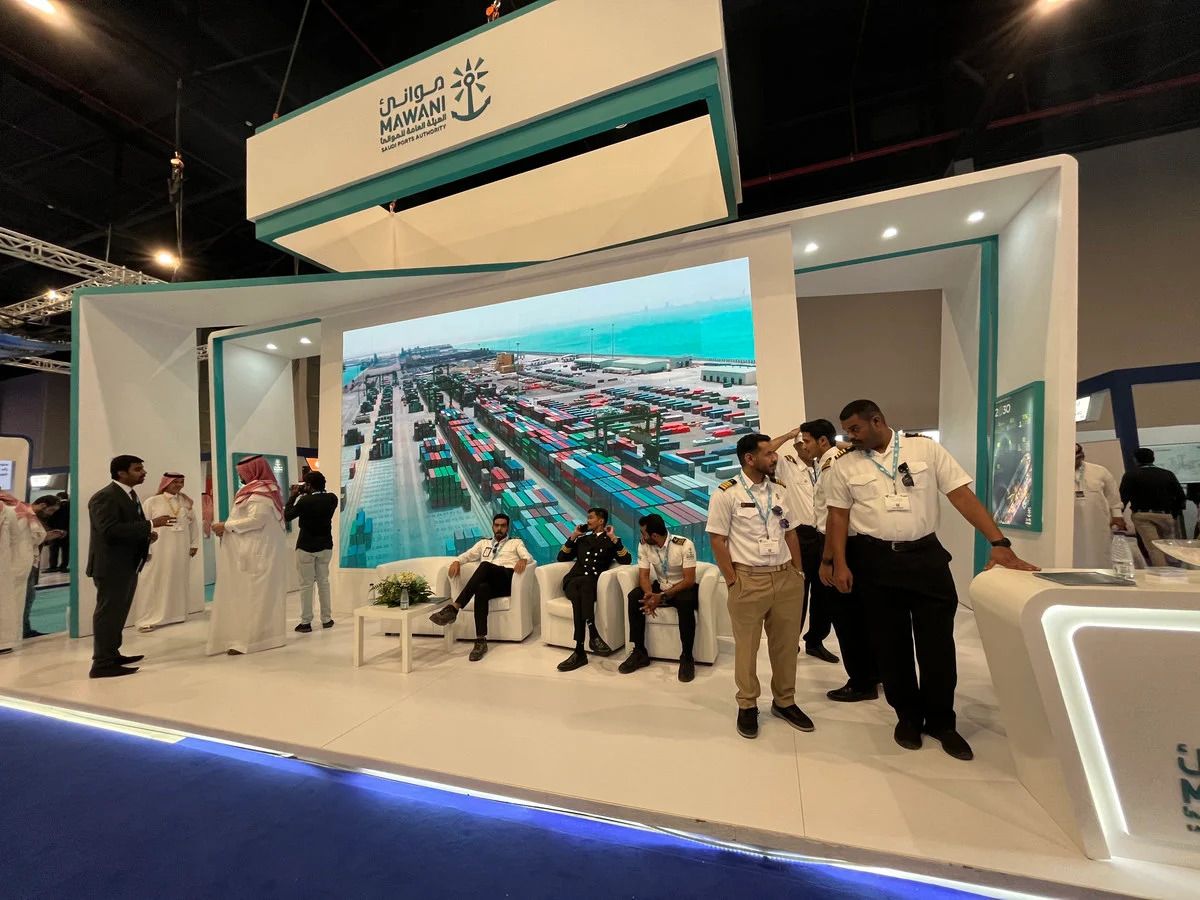Saudi Maritime Congress draws record interest
On day one of the two-day conference, registration lines snaked across the building and into the parking lot, as visitors waited to enter what the organizers called “the Kingdom’s largest and most important global maritime event.”
Organizers said that the turnout was record-breaking in comparison to earlier events.
The space was opened in a ribbon-cutting ceremony by Rumaih Al-Rumaih, vice minister of transport and logistic services, Omar Hariri, president of the Saudi Ports Authority, and the undersecretary of the Eastern Province governorate, Khalid Al-Batal.
The event offered visitors the chance to tour the vast exhibition space. Dedicated booths provided businesses with the chance to initiate dialogue, pass out brochures and inform visitors of their company’s mission. This provided an organic networking option for people to exchange ideas and business cards.
The event, held under the patronage of Prince Ahmed bin Fahd bin Salman, deputy governor of the Eastern Province, featured a Keynote session, “Vision 2030: An update on progress and opportunity for growth,” during which panelists discussed the latest updates on their industry’s contribution to Vision 2030.

Ahmed Alsubaey, CEO of Bahri, the transportation and logistics company and the national carrier of Saudi Arabia, said: “Guided by KSA Vision 2030, we are committed to making the Kingdom the epicenter for international trade. To achieve this, currently our key focus areas include supporting KSA’s aspiration to reach the top 25 in the Logistics Performance Index and be one of the top 15 global economies.”
There were also several panels and talks that explored present and future challenges for the logistics sector globally — but with an emphasis on Saudi Arabia.
Expert moderator Eithne Treanor of E Treanor Media was on hand, as was Jasmin Fichte of Fichte & Co. Legal. Topics explored included: How the industry fits into Vision 2030, and why companies are embracing technology while enabling trade and enhancing port standards. The topic of supply-chain efficiency and ports and logistics infrastructure in the region was also addressed.
On day two, talks focused on decarbonization and the fuel revolution to 2050, and on developing and training the maritime workforce. The forum offered the chance for people from all sectors of the industry to meet, brainstorm and update knowledge.
One of the key highlights was the virtual opening remarks by Kitack Lim, secretary general of the International Maritime Organization. Lim expressed his interest in trying to collectively tackle climate change and the challenges, and the opportunities, that come with automation and digitization.

“Shipping’s ability to transport large quantities of goods over vast distances in a cost-efficient manner is irrefutable, and the COVID pandemic and current geopolitical challenges have only served to increase the world’s awareness of its reliance on shipping and of seafarers’ invaluable role in global trade,” Lim said.
“I would like to express my appreciation to Saudi Arabia for the positive disposition to the aims and objectives of the IMO and for the constructive input to the work of the organization,” he said.
“I would also like to highlight the generous support for capacity-building in developing countries, such as through the IMO CARES (Coordinated Actions to Reduce Emissions from Shipping) initiative; funding to raise awareness of biofouling management and specifically to involve women across maritime industries and administrations; and thirdly, co-financing support for the GloLitter Project to tackle marine plastic litter.”
Chairman of Seatrade Maritime Chris Hayman echoed other speakers when he said: “Saudi Arabia is a vital contributor to the growth of the global maritime industry. Its strategic location makes it an ideal trade hub as it connects the eastern and western parts of the globe . . . Through a strategically planned agenda, and the participation of several leading maritime organizations, Saudi Maritime Congress has further paved the way for the country’s success.”
The congress also hosted strategic signings for industry collaboration between the Saudi Ports Authority and leading maritime companies in the region, including Bahri, International Maritime Industries, Saudi Accreditation Center, King Abdulaziz University, Tabadul, MBL, PCMS, Giza Arabia and Globe.













